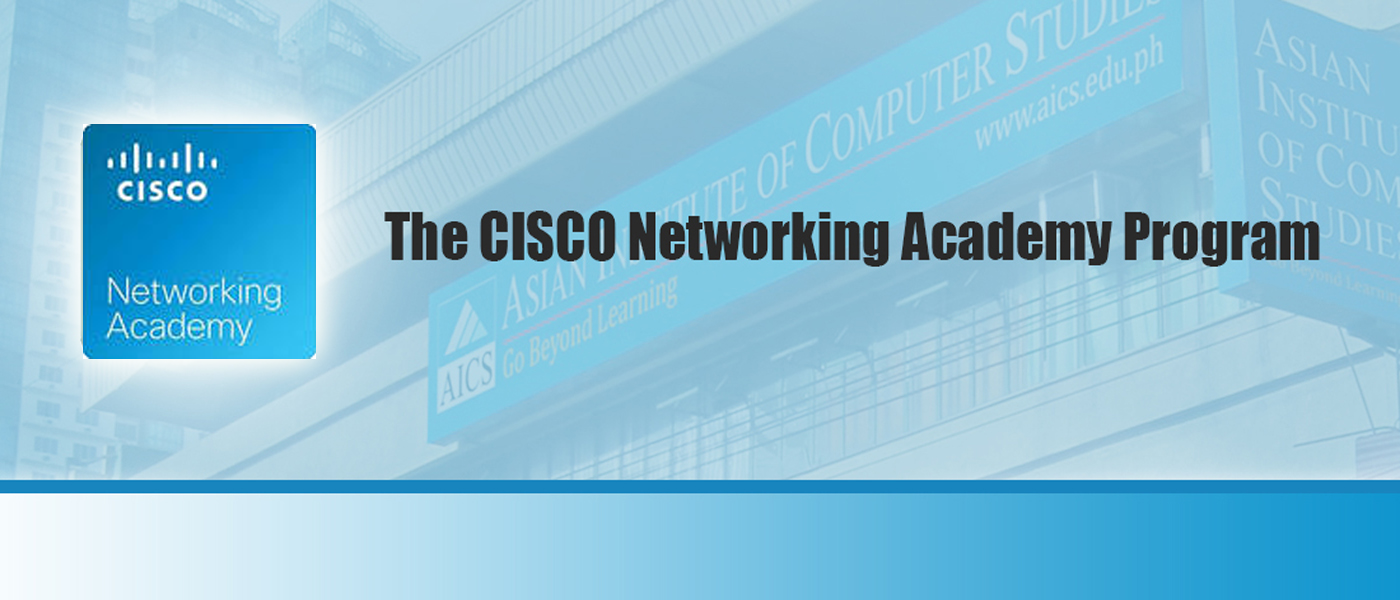
I.T. Certification Program
The worldwide use of Computer and Internet as a powerful means of communication has undeniably reached to its near peak that ignorance to such excuses no one. Thanks to the modern-day technology, where everything has been speedily facilitated, making its wave to the most remarkable path in the history of Technological Advancement.
While a lot of expectation is constantly laid on the overwhelming outpour of new inventions in Information Technology, more and more Industry-Standard Certifications swift their way to a never-ending demand here and abroad. It seems just like yesterday when all we need are diploma and transcript in order to find a job. How time swiftly flies and it becomes a lot different now. In this advanced era of Information Technology, Certification is a Universal Quest. Certainly, Certification gives an instant sense of reliability and credibility as far as skills, knowledge and abilities are concern on the part of the applicant or worker. IT workers with Industry –Standard Certifications are the top priorities for hiring not only in America, Europe, Middle East and Asia but also in all parts of the world. And that is the reason why too many IT people crave for as many certifications as they can, that they can't seem to balance on the circus high-wire while juggling 2 or more courses at a time.
Yes, that's how important these certifications are nowadays that before you desire and plan to have one the demand is already there at your doorstep.
How can we pull off with such a difficult situation without falling into the trap of missing what is most important? When this kind of trend swarm in, all too often the wrong ones take the highest priority - ornamental courses with hollow promises so to say.
Asian Institute of Computer Studies (AICS), in its continuous pursuit of top-rated certification courses, comes up with the matchless perfect choice in the field of Information Technology – The CISCO NETWORKING ACADEMY PROGRAM.
Course Overview
The Cisco CCNAv7 course includes activities using Packet Tracer, hands-on lab work, and a wide array of assessment types and tools. The CCNAv7 curriculum helps students develop workforce readiness skills and builds a foundation for success in networking-related careers and degree programs.
CCNA1v7: Introduction to Networks (ITN)
This course covers the architecture, structure, functions and components of the Internet and other computer networks. Students achieve a basic understanding of how networks operate and how to build simple local area networks (LAN),perform basic configurations for routers and switches, and implement Internet Protocol (IP).
By the end of the course, students will be able to:
- Configure switches and end devices to provide access to local and remote network resources.
- Explain how physical and data link layer protocols support the operation of Ethernet in a switched network.
- Configure routers to enable end-to-end connectivity between remote devices.
- Create IPv4 and IPv6 addressing schemes and verify network connectivity between devices.
- Explain how the upper layers of the OSI model support network applications.
- Configure a small network with security best practices.
- Troubleshoot connectivity in a small network.
Prerequisites: None
CCNA2v7: Switching, Routing, and Wireless Essentials (SRWE)
This course covers the architecture, components, and operations of routers and switches in small networks and introduces wireless local area networks (WLAN) and security concepts. Students learn how to configure and troubleshoot routers and switches for advanced functionality using security best practices and resolve common issues with protocols in both IPv4 and IPv6 networks.
By the end of the course, students will be able to:
- Configure VLANs and Inter-VLAN routing applying security best practices.
- Troubleshoot inter-VLAN routing on Layer 3 devices.
- Configure redundancy on a switched network using STP and EtherChannel.
- Troubleshoot EtherChannel on switched networks.
- Explain how to support available and reliable networks using dynamic addressing and first-hop redundancy protocols.
- Configure dynamic address allocation in IPv6 networks.
- Configure WLANs using a WLC and L2 security best practices.
- Configure switch security to mitigate LAN attacks
- Configure IPv4 and IPv6 static routing on routers.
Prerequisites: CCNA1v7:Introduction to Networks (ITN)
CCNA3v7:Enterprise Networking,Security, and Automation(ENSA)
This course describes the architecture, components, operations, and security to scale for large, complex networks, including wide area network (WAN) technologies. The course emphasizes network security concepts and introduces network
virtualization and automation. Students learn how to configure, troubleshoot, and secure enterprise network devices and understand how application programming interfaces (API) and configuration management tools enable network automation.
By the end of the course, students will be able to:
- Configure single-area OSPFv2 in both point-to-point and multiaccess networks.
- Explain how to mitigate threats and enhance network security using access control lists and security best Practices./li>
- Implement standard IPv4 ACLs to filter traffic and secure administrative access.
- Configure NAT services on the edge router to provide IPv4 address scalability.
- Explain techniques to provide address scalability and secure remote access for WANs
- Explain how to optimize, monitor, and troubleshoot scalable network architectures.
- Explain how networking devices implement QoS.
- Implement protocols to manage the network.
- Explain how technologies such as virtualization, software defined networking, and automation affect evolving networks.
Prerequisites: CCNA2v7: Switching, Routing, and Wireless Essentials (SRWE)
Tuition fee per module: Php 5,500.00 – 70 Hours
New Complimentary Offering: 8-Hour Emerging Technologies Workshops
The "Network Programmability with Cisco APIC-EM" workshop is a fantastic way to expose your students to the new era of networking. Plan to insert this one-day workshop into your "CCNAv7: Enterprise Networking, Security, and Automation (ENSA)" course to amplify the relevancy of your students’ skills. The Workshop Quick Start Guide has suggested insertion points. See the Emerging Technologies Workshops Resources page for more information.
